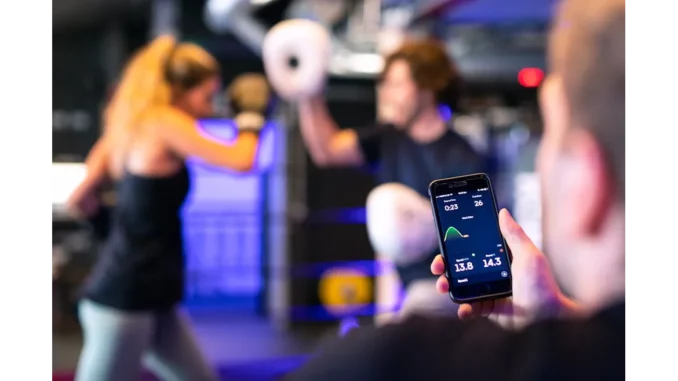
Summary
dorsaVi Embarks on Blockchain Feasibility Study for Enhanced Data Security
dorsaVi, an ASX-listed pioneer in motion analysis technology, is launching a feasibility study to explore the integration of blockchain technology into its platform. This initiative underscores the company’s commitment to innovation in data security and privacy. Rachel Thompson, lead engineer at dorsaVi, emphasised the potential of blockchain to provide “encrypted, immutable, and tamper-proof solutions” for data protection, aligning with the company’s mission to meet stringent client demands.
Main Article
dorsaVi, known for its cutting-edge motion analysis platform, is making waves with its latest venture—a feasibility study aimed at integrating blockchain technology. This move is not merely strategic but reflects dorsaVi’s dedication to innovation and excellence in the realm of data security and privacy.
Blockchain’s Promising Potential
Rachel Thompson, a lead engineer at dorsaVi, elaborated on the decision to pursue blockchain technology. “Our enterprise clients are already demanding the highest levels of data protection,” she remarked. The company’s wearable sensors, which are among the few approved by the US Food and Drug Administration, already handle vast amounts of sensitive data. Integrating blockchain could significantly enhance the security and integrity of this data, offering a robust solution to meet and exceed client expectations.
The feasibility study will investigate advanced consensus mechanisms such as proof-of-stake and directed acyclic graphs. These mechanisms are appealing due to their energy-efficient scalability and security, particularly vital for mobile health data applications. The study aims to assess the feasibility of blockchain integration, as well as explore its potential benefits for regulatory compliance and data accuracy.
Enhancing Current Capabilities
Currently, dorsaVi’s platform supports millions of data transfers annually, capturing critical metrics such as joint angles, muscle activity, gait parameters, and postural alignment. These data points are essential for enterprise clients in healthcare and workplace contexts. “The sensors we use continuously track movement patterns,” Rachel explained. “They sync data in real-time for both immediate analysis and long-term monitoring. Incorporating blockchain could enhance our ability to ensure that this data remains compliant with regulatory standards, which is a top priority for us.”
Future Prospects in AI and IoT
Rachel also highlighted the potential for blockchain to facilitate future advancements in artificial intelligence and the Internet of Things (IoT) technologies. Such developments could significantly increase the platform’s versatility, especially in clinical care, workplace safety, and elite sports markets. “It’s about preparing our platform for future advances,” she noted, “and ensuring we continue to deliver unmatched value to our clients and shareholders.”
In a rapidly evolving technological landscape, Rachel stressed the importance of staying ahead of the curve. “Technology is evolving at a rapid pace,” she observed. “To maintain a competitive edge, we need to be proactive in exploring and adopting new technologies that can enhance our offerings.”
Detailed Analysis
The integration of blockchain technology into dorsaVi’s platform aligns with broader trends in the tech industry, where data security and privacy are paramount. With increasing incidents of data breaches and privacy concerns, companies across various sectors are exploring blockchain’s potential to offer secure, transparent, and decentralised data management solutions.
Blockchain’s ability to provide an immutable and tamper-proof record is particularly appealing for industries handling sensitive data, such as healthcare and finance. For dorsaVi, which operates at the intersection of health and technology, blockchain presents an opportunity to strengthen its data security framework, thus enhancing trust and compliance with regulatory standards.
The exploration of energy-efficient consensus mechanisms is also noteworthy, as it addresses the growing concern over blockchain’s environmental impact. By investigating proof-of-stake and directed acyclic graphs, dorsaVi is positioning itself at the forefront of sustainable technological innovation.
Further Development
As dorsaVi embarks on its blockchain feasibility study, the industry will be watching closely to see how this integration unfolds. The study’s findings could set a precedent for other companies looking to leverage blockchain technology for enhanced data security.
With the potential to revolutionise data management in healthcare and workplace contexts, dorsaVi’s initiative could pave the way for more widespread adoption of blockchain solutions. Readers are invited to follow this developing story, as dorsaVi continues to explore the transformative potential of blockchain technology. Stay tuned for further updates as the company progresses in its ambitious project to redefine data security and privacy in the digital age.

